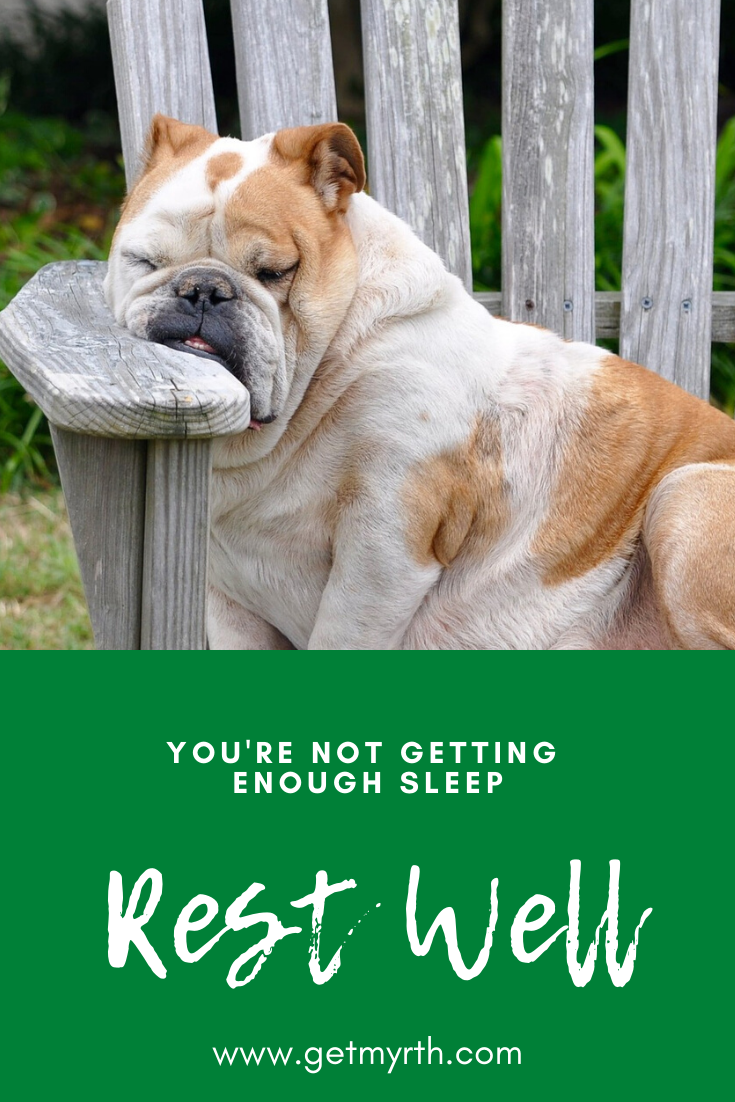Not Getting Enough Sleep? 6 Ways To Do Something About It Now
Are mornings rough for you? Do you find yourself hitting the snooze button several times in a row, having to pry your eyelids open with your fingers, and guzzling three cups of coffee just to get moving? Some people are just wired for a later schedule, but for many, there is actually an underlying problem:
They’re not getting enough sleep.
It wasn’t always like this. The historian Sarah Knott explores the change in human sleep patterns in her book Mother Is A Verb, mainly using it as a vehicle to think about how parents would have experienced interrupted sleep cycles associated with having infants and small children, but the general trend holds true for those who aren’t parents, too. Before the advent of reliable nighttime light, sleep schedules waxed and waned over the course of the year, as days lengthened and shortened and the agricultural cycle followed its path of sowing, waiting, and harvesting. People would go to bed once it was too dark to do other things, sleep for a few hours, experience a period of wakefulness in the middle of the night, and go back to sleep for a few more hours.
Once there was kerosene, then gas light, and then electric light, people were able to stay up later and their sleep schedules condensed. The modern concept of a solid night’s sleep was born. Now, when we think of getting enough sleep, we think of 7-8 uninterrupted hours of deep sleep.
But if you’re not getting that kind of sleep, you’re not alone. The CDC estimates that one in three American adults isn’t getting enough sleep (defined as 7 or more hours per day). That adds up over time, and the consequences can be serious.
Why Sleep Is Crucial
Chronic sleep deprivation can have significant and wide-ranging health impacts. People who routinely do not get enough sleep are at higher risk for diabetes, hypertension, obesity, mood disorders, and reduced immune function. Not getting enough sleep is also linked to increased alcohol use.
Lack of sleep is also a public safety risk. Job performance slips with extended sleep deprivation, and drowsy drivers cause thousands of accidents every year. In more high profile situations, investigations found that significant sleep deprivation played a role in the 3 Mile Isle, Chernobyl, Exxon Valdez, and Challenger disasters. That’s because chronic sleep deprivation affects your ability to think clearly, your judgment, and your reasoning.
How to Improve Your Sleep
If you know you’re not getting enough sleep, and you want to improve that, there’s good news: you can take steps to help improve the amount and quality of your sleep. There are a lot of resources and ideas out there, but here are some basic ones to get you started.
Set an alarm. No, not an alarm to wake you up in the morning, but an alarm to remind yourself to go to bed. A lot of people get distracted by tv, a good book, or scrolling social media before bedtime, and suddenly, it’s two hours later and they’re still awake. You can help avoid that situation by interrupting your distraction and reminding yourself to power down - both your devices and yourself.
Create a bedtime routine. If you can establish a bedtime routine that is relaxing, it will help your body recognize when it’s time to start winding down for the day. Start at the same time each evening (see tip #1 to help you stick to a schedule!) and do the same things. Your brain and body will start to settle into a routine, too, and will begin to relax.
Remove distractions. Experts recommend minimizing the amount of distractions in your bedroom and staying out of your bed when it’s not time to sleep. If you associate your bed with working or playing, it will be harder to turn off those thoughts when it’s time to sleep.
Monitor your satiety. Going to bed hungry or too full can interrupt your sleep or make it hard to fall asleep at all. Make sure you’re eating enough to feel comfortably full at bedtime, but not overly so.
Get a little exercise. The CDC recommends getting some exercise during the day to help you sleep more soundly at night.
Try meditation. If you are at your wits end and nothing else is working try a bedtime meditation or sleep story. There are tons of options - find your favorite and lull yourself to sleep. This sleep focused blog also gives you a run-down of those options - check out mysleepambition.com.
With a little focus and intention, you can help improve the quality and quantity of your sleep. Of course, none of these tips will fix an overloaded schedule, an emergency, or a work culture that lionizes sleep deprivation, but they can go a long way toward improving smaller bad habits that might be hurting your sleep.
Have you taken steps to make sure you get a better night’s sleep? What are you using? Drop a comment below - we’d love to hear from you!
P.S. - You can save and share this post to Pinterest using the image below:


